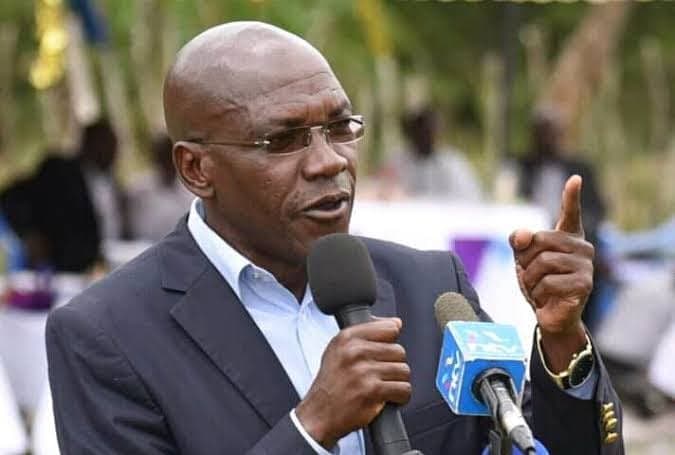We're loading the full news article for you. This includes the article content, images, author information, and related articles.
A public altercation between Senator Boni Khalwale and a Kakamega County Executive Committee member has raised concerns about oversight processes and intergovernmental relations during a Senate committee's project inspection.

A Senate committee's inspection of development projects in Kakamega County on Friday, October 4, 2025, was marred by a public altercation between Kakamega Senator Boni Khalwale and a County Executive Committee (CEC) member. Kisii Senator Richard Onyonka reportedly intervened to de-escalate the situation, which saw Khalwale accuse the county official of corruption and project mismanagement.
The incident occurred during a visit by the Senate's Devolution and Intergovernmental Committee, which was in Kakamega to assess the progress of key county projects. The confrontation reportedly began when Senator Khalwale confronted the CEC, demanding answers regarding project delivery and alleging corruption.
The Senate Devolution and Intergovernmental Relations Committee is mandated to oversee the implementation of devolution and intergovernmental relations, including monitoring county government projects and expenditures. Such visits are crucial for accountability, ensuring that public funds are utilized effectively and that development goals are met. The committee's role involves scrutinizing project timelines, costs, and quality of work, often engaging directly with county officials and local communities.
The Constitution of Kenya, 2010, establishes the Senate's oversight role over county governments. Article 96 outlines the Senate's functions, including representing counties and serving to protect the interests of the counties and their governments. The County Governments Act further details the operational aspects of county governance and the mechanisms for intergovernmental relations, emphasizing accountability and transparency in public service delivery.
The public nature of the altercation has drawn attention to the often-strained relationship between national and county government officials, particularly during oversight functions. Analysts suggest such incidents could impact public debate on policy execution and potentially influence future intergovernmental engagements. There are calls for greater clarity on project timelines, costs, and safeguards to prevent similar confrontations and ensure smooth oversight processes.
Such public confrontations risk undermining the collaborative spirit necessary for effective intergovernmental relations and can distract from the substantive issues of project oversight. They may also erode public trust in both national and county leadership if not addressed constructively. Ensuring decorum and adherence to established protocols during oversight visits is crucial for maintaining the integrity of governance institutions.
Further statements from the Senate, the Kakamega County Government, or the involved senators are anticipated. The incident may prompt discussions within the Senate on protocols for committee visits and engagement with county officials. The ongoing investigation into the alleged corruption and project mismanagement will also be a key area to monitor.
Keep the conversation in one place—threads here stay linked to the story and in the forums.
Sign in to start a discussion
Start a conversation about this story and keep it linked here.
Other hot threads
E-sports and Gaming Community in Kenya
Active 9 months ago
The Role of Technology in Modern Agriculture (AgriTech)
Active 9 months ago
Popular Recreational Activities Across Counties
Active 9 months ago
Investing in Youth Sports Development Programs
Active 9 months ago
Key figures and persons of interest featured in this article